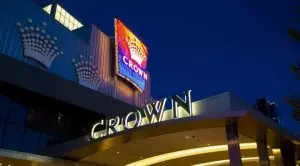 The major suitor for Crown Resorts’ assets may have to deal with heavy new regulations imposed on the Melbourne property of the Australian gambling giant in case the Victorian government decides to act on findings from its unfavourable report of the local Royal Commission into the group.
The major suitor for Crown Resorts’ assets may have to deal with heavy new regulations imposed on the Melbourne property of the Australian gambling giant in case the Victorian government decides to act on findings from its unfavourable report of the local Royal Commission into the group.
The US-based private equity firm is currently finalising due diligence on its proposed AU$8.9-billion acquisition of Crown Resorts. As Casino Guardian reported about a week ago, the board of the Australian casino group noted that it is likely to support a sale in case Blackstone puts forward an official takeover offer. However, for the time being, it remains unclear how the private equity company would operate the Crown’s flagship casino in Melbourne in case the Government of Victoria decides to implement last year’s Royal Commission findings into the gambling operator.
In October 2021, Commissioner Ray Finkelstein, QC, revealed that the Australian gambling giant was unfit to operate its casino in Melbourne due to significant breaches of legal and ethical rules. The casino operator, however, was given a 2-year grace period to make things right and correct its wrongdoings.
All 33 recommendations made by Commissioner Finkelstein were backed by the Andrews government “in principle”. In 2021, the authorities passed the first tranche of legislation acting on 9 recommendations of the Commissioner, including the appointment of Stephen O’Bryan, the ex-public sector corruption watchdog, at the position of a special manager who will be engaged with the monitoring of the Australian gambling giant’s improvement in Melbourne. He will be the one who will have to make a decision on whether the operating licence of Crown Melbourne is cancelled after two years.
Crown Melbourne Is Required to Be Operated as Independent Property
 Later this year, the second tranche of legislation on the remaining recommendations of Commissioner Finkelstein is set to be completed. The move, however, could cause even more serious headaches for Blackstone, especially considering the fact that the appointment of independent directors has been among the recommended changes.
Later this year, the second tranche of legislation on the remaining recommendations of Commissioner Finkelstein is set to be completed. The move, however, could cause even more serious headaches for Blackstone, especially considering the fact that the appointment of independent directors has been among the recommended changes.
Another important recommendation made by Mr Finkelstein is for the casino legislation of the state to be amended in a way that would make sure that Crown Melbourne is operated by independent Victorian-based executives who are not required to take instructions from or report to anyone outside the casino itself, including the venue’s parent company.
All of this makes the former head of the Victorian Commission for Gambling and Liquor Regulation (VCGLR), Ian Dunn, who chaired the regulator from 2004 to 2009, believe that Blackstone would face significant regulatory hurdles on its way to acquiring Crown Resorts. According to Mr Dunn, Blackstone still believes that it would be entitled to run the casino’s board but such permission would be fully inconsistent with the recommendations made by Commissioner Finkelstein in October last year.
In fact, the obligation for the Melbourne venue of the casino giant to be operated locally and independently has always been part of the commercial agreement inked between the state’s gambling watchdog and Crown Resorts, as it was aimed at making sure that the casino was operated in a way that would guarantee maximum benefit to the Victorian economy. Such a way of operation could also guarantee more effective regulation for the venue. However, as the Victorian Royal Commission found, that obligation was fully ignored by Crown Resorts that had not only run the venue through its parent company but the executives of the property were often based in Sydney or Perth.
The US equity firm that offered to take over Crown Resorts’ assets has not commented on the matter. Any potential sale would have to be approved by the Victorian Gambling and Control Commission. The deal would also need to be approved by the Independent Liquor and Gaming Authority (ILGA) of New South Wales (NSW) and the Gaming and Wagering Commission of Western Australia.
According to some market experts and investors, a sale is looking more likely. In any case, the largest shareholder of the Australian gambling giant, James Packer, who currently owns approximately 37% of the company, will play a decisive role in any potential deal.
- Author


